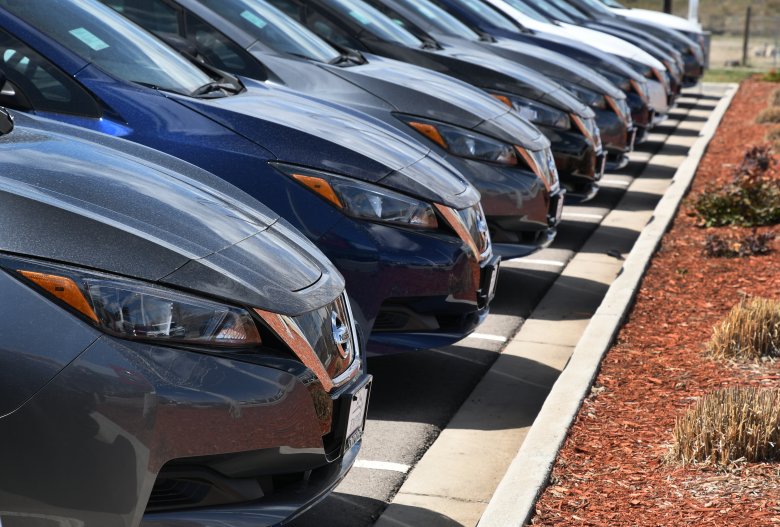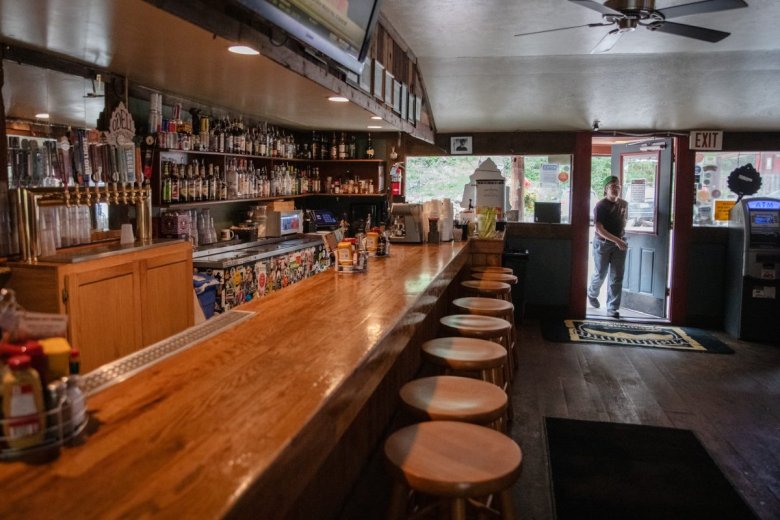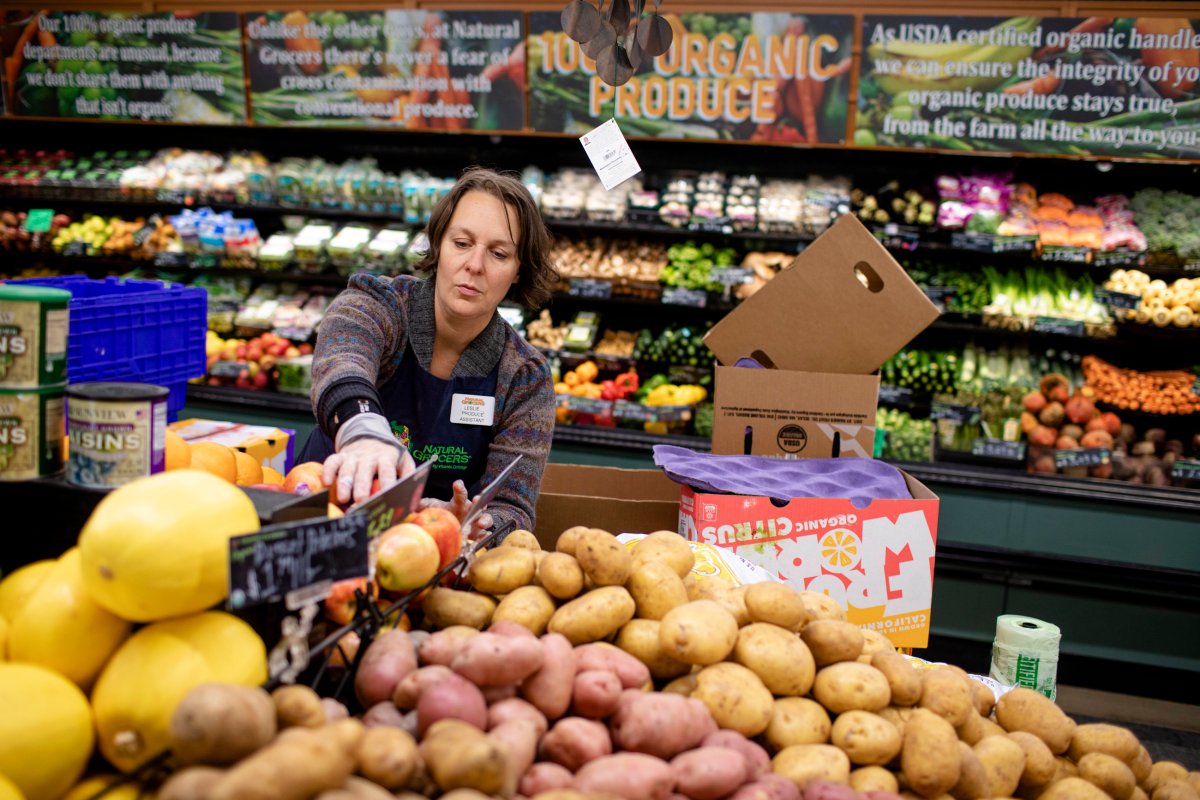If food, gas and used car prices in the Denver area seem like they’ve finally stabilized or dropped, the latest economic data backs that up. The Denver-area inflation rate rose to 1.9% in July from a year ago, continuing its decline since September, according to data released Wednesday by the U.S. Bureau of Labor Statistics.
That’s a whole percentage point lower than the national annual inflation rate of 2.9%. And compared with other cities, the prices of certain items are much friendlier to local wallets.
“I paid just under $3/gallon at Costco here,” Steve Cohn, a Denver resident said in an email. “Last week in Chicago it was nearly a dollar more.”
In the past year, overall gasoline prices dropped double digits. Used-car prices are down 9.7%. The cost of food at grocery stores did not change.
The 1.9% drop seemed surprising to area economists, who had expected national price growth to slow, in anticipation of the Federal Reserve lowering interest rates which will make loans for cars and houses more attractive to consumers. Denver had already fallen below the national rate earlier this year.
Denver’s dip in July is largely due to falling home-price growth, which dropped at a faster rate than the U.S, said Rich Wobbekind, an economist at University of Colorado. And housing costs take up a larger portion of a consumer’s monthly expenses so even a small decline can have a big impact.
“Yesterday, the NAR (National Association of Realtors) housing report came out and in the 10 cities I believe we were the only one negative year over year minus 0.7%,” Wobbekind said.
The slowing inflation, however, won’t reverse the rapid increase the area’s Consumer Price Index has experienced since 2021. Since local consumers felt the impact of higher prices before the rest of the U.S. — Denver had a 9.1% inflation rate in March 2022, with the U.S. following a few months later — overall prices have increased 10%. And prices for other items aren’t going down. They’re just going up more slowly and that’s impacting how people spend on the extras.
“Our house payment has gone up $200 a month due to increases in our insurance and taxes,” said Linda Fahrenbruch, a Broomfield resident, who happened to be camping Tuesday in Pagosa Springs. “We have pretty much given up eating out and other entertainment with very few exceptions.”
Calling from her campsite where the Wi-Fi was very good, the retired Fahrenbruch said she and her husband are on their second local camping trip of the year. Usually, they travel for longer or farther. They cut back this year.
“It seemed like back in 2022, we still felt pretty comfortable and we weren’t as concerned with the high cost of everything as we are now,” she said. “I think it was 2022 when we went through Wyoming and into Montana, Idaho, Washington and Oregon and all the way down the coast to California. We just don’t feel like we can do anything like that now. … We’re hoping that prices are going to start coming down.”
New and used car prices are down 1.6%, though most of the decline is in the used-car market, which fell 9.7%. That doesn’t necessarily mean car prices are cheaper. But there has been a slowdown, said Matthew Groves, CEO of the Colorado Automobile Dealers Association.

“Our industry is largely recovering from the supply chain issues that ravaged us coming out of the pandemic. At times, spare parts can still be an issue, but largely the manufacture of new cars is stabilizing,” he said in an email.
Incentives, especially for electric vehicles, may be keeping costs down, he added. “I’m sure you’ve seen some other stories that qualified buyers are taking leases on new EVs for less than $100 a month. Those heavy incentives push people towards new — in large part because it’s a hedge against the expensive repair bills of used. Some of those purchase incentives do not extend to used vehicles.”
The cost of eating out continued to increase, up 5.7% locally. The restaurant industry was one of the hardest hit during the pandemic and the recovery as restaurant owners raised menu prices and some added service charges to offset the higher costs of food, labor, rent, utilities, taxes and more. Since July 2020, the cost of dining out is up 30%. But the cost of eating has slowed this year, though that’s been too late for some restaurants and owners as the number of customers dwindled.

But there could be a number of reasons why Denver is leading the way on slower inflation, said Gary Horvath, an economist in Broomfield.
Denver’s data does have some holes, he pointed out. The July report for the Denver region doesn’t include electricity and natural gas costs and he’s not sure why. Since the end of 2021, the every-other-month report also has excluded changes to the cost of automobile insurance, which increased 18.6% nationwide in July.
BLS officials did not have an immediate explanation for the exclusions but said they would look into it.
“I’m assuming it’s part of the overall calculation. Maybe it didn’t get done for some reason? But if you look into the May data, those areas were very high and when I say very high, it was 4% to 6% higher and that to me is very high,” Horvath said. “My sense is that electricity is still a high number.”
☀️ READ MORE
The economists at the Common Sense Institute, a conservative economic think tank in Greenwood Village, pointed out that Denver’s rate did increase faster than the U.S., at 0.6% compared with 0.2% in the past two months. They attributed the faster rise to “medical care (1.3%), transportation (1%), food (0.7%), and housing (0.4%).”
Brian Lewandowski, executive director at the University of Colorado business school’s Business Research Division, said that while Denver’s faster decline in inflation was a surprise, how it will fare in the future will be what he’s watching.
“While this is an improvement both nationally and locally, I look forward to watching this over the next few months to see if these rates can be sustained and with low volatility,” he said.

